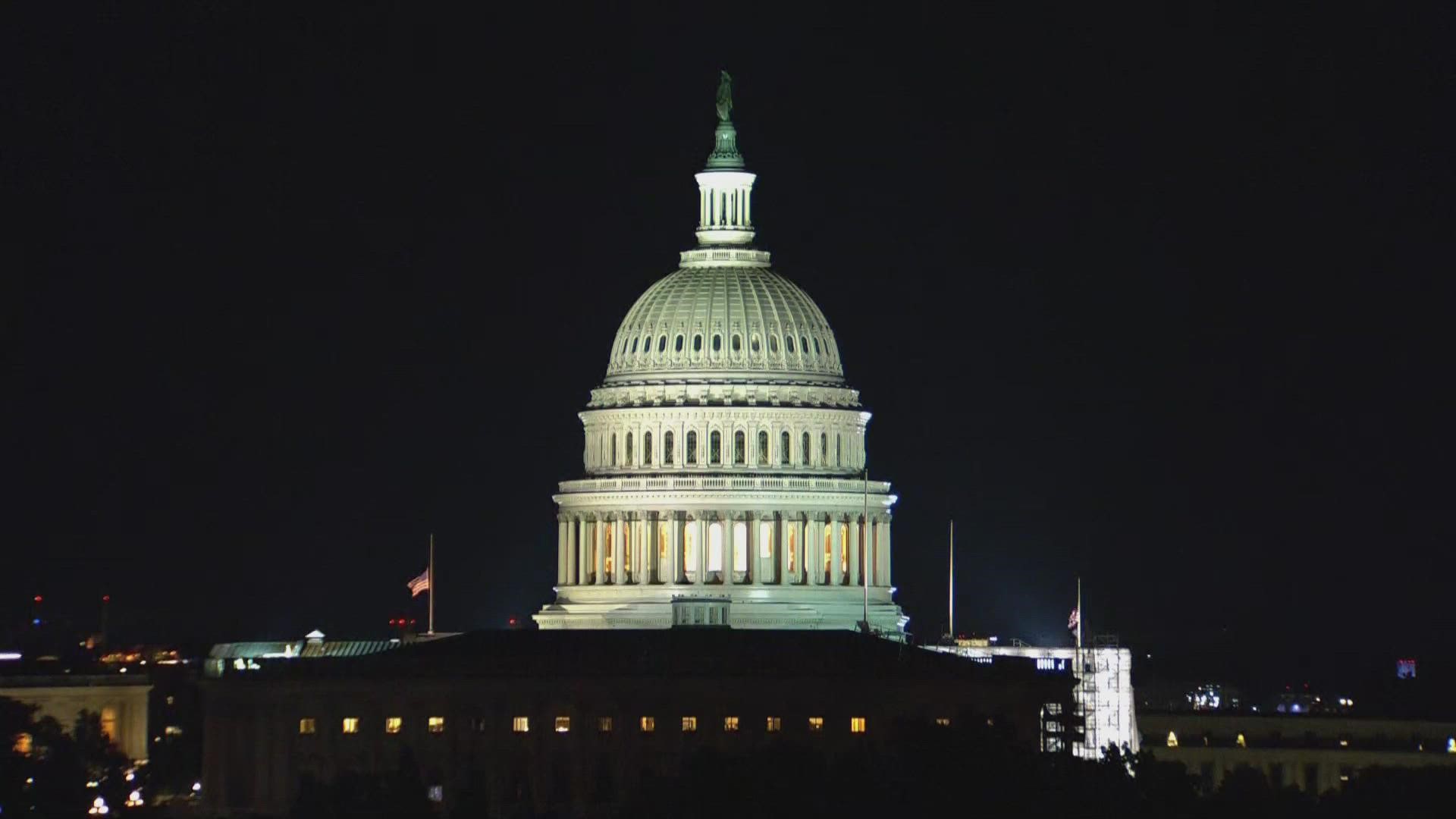TEXAS, USA — A Central Texas economist says the Inflation Reduction Act is a decent bill and will help in a lot of aspects, but the name does not fit what it's set up to do.
Ray Perryman, president and CEO of The Perryman Group, said it's not the immediate solution Americans are looking for as prices have climbed in just about everything.
"I think Inflation Reduction Act is a bad name," he said. "It's not going to do anything appreciable in the next two or three months to help with inflation. It will reduce the deficit some over the long term."
Democrats have said the bill to lower inflation, but skeptics say it's going to make the current economy situation worse.
When the bill was starting in the process it was under a different name and was about five times as big as the version the Senate passed Sunday. As Perryman explains the bill had to be carefully constructed and condensed to get all Democrats on board.
"Anytime you have a 50/50 Senate -- getting anything substantial done is quite an accomplishment," Perryman added.
He says the inflation reduction act is modest and it will depend how it evolves if signed by President Biden.
"It's certainly limited in what it seeks to do and that can either be good or bad," Perryman explained.
Senate Democrats pushed the blockbuster multi-billion dollar bill forward Sunday. Most of the bill invests in climate change mitigation and clean energy but another big takeaway is the help at reducing costs for the thousands enrolled in medicare.
"This bill actually allows medicare to start negotiating prices on 10 high cost medications for patients and medicare has not been able to negotiate those prices before," said Dr. Amy Mersiovsky, director of Department of Nursing for Texas A&M Central Texas.
She says slashing costs and making health care more of an option is a win in America, and a start in the right direction.
"That will help patients to continue their insurance coverage, which is really important because it helps us all bring down the cost of our health care," Mersiovsky explained.
A hefty part of the bill is what Democrats are calling the 'single biggest investment in climate change in u.s. history.'
Perryman says more could have been done about climate change, but he's glad it didn't decimate the oil and gas industry.
"Our studies and many other studies, including the Department of Energy, showing we need that oil and gas in the future; it did not do that," he said. "So, it didn't do the bad stuff I was worried about the climate bill doing. On the other hand, ideally you would like to see it go further in achieving some of the emissions goals."
To pay for the $750 billion deal Democrats are targeting tax changes aimed at the wealthiest and big corporations.
The bill will hike the corporate minimum tax rate to 15 percent for big businesses and boosting IRS enforcement by adding 87,000 employees, and the government is projecting more than $200 billion over a ten years because of the lower medicare drug costs.
Perryman says there could be very little passed on to consumers but nothing directly.
"There's some chance down the road that some of the big companies will pay a little bit and might pass some of that down to consumers," he explained. "They might not depending on supply and demand conditions and that sort of thing, but the bottom line is there's not a thing in here that's going to change your tax rate. There's not much in here that's going to change your tax bill and your tax forms much at all."
But, with thousands more of IRS agents to be hired to cut down on tax cheats, skeptics say they will go after the middle class.
"If [the bill] evolves like it should those folks who are honest and pay their taxes and that sort of thing won't be impacted," Perryman said. "They will be able to find some of the folks who are avoiding paying legitimate taxes. It will be looking for those major taxpayers that have eluded the system in some way and given how much money they think they're going to generate by this is what Congress intends."
The house is set to vote on the Inflation Reduction Act later this week. If it passes it would go back to the senate again, before heading to the president's desk where he is expected to sign it.

